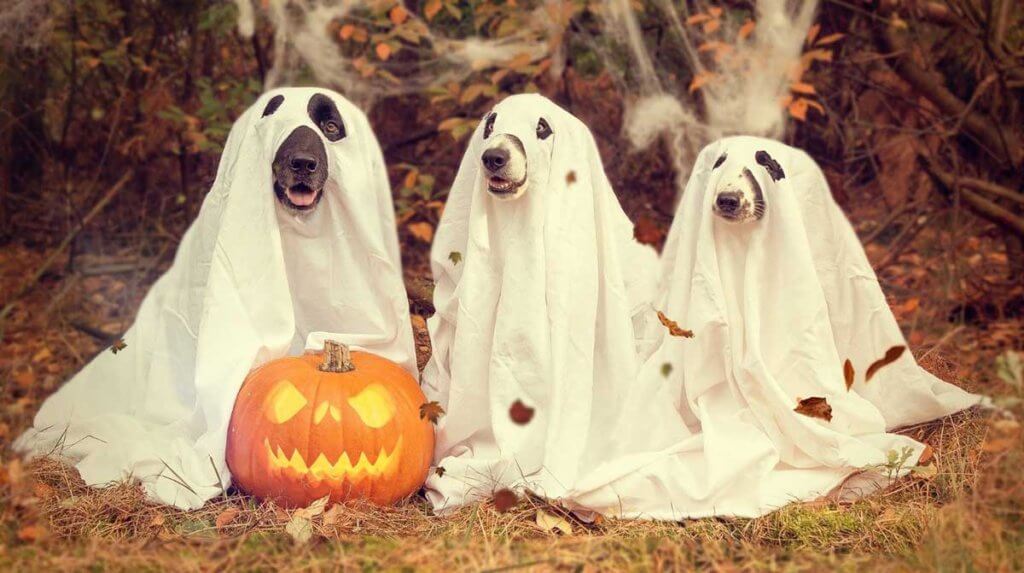
With scary costumes and tempting candy abounding, Halloween can be a frightening time for pet owners – and a risky time for pets, too. The American Animal Hospital Association encourages pet owners to protect their companion animals by being mindful of their F.E.A.R. – food, environment, attire, and recovery – to keep pets safe and happy on Halloween.
FOOD
Chocolate is toxic to dogs and can lead to illness and even death. Xylitol, a common sugar substitute found in gum, candy, and baked goods, is also toxic to small animals because it induces a sudden rush of insulin resulting in very low blood sugar. If your pet is one that likes to counter-surf or sneak people food, it is best not to have chocolate and xylitol candies for Halloween.
Pet proof your Halloween candy by putting candy bowls in an area where your pets cannot reach them.
ENVIRONMENT
One of the easiest ways to keep your pets safe on Halloween is to control their environment. With an increase in visitors, scary costumes, noise, and doorbells ringing, even the perfect pet might feel a little tense on Halloween. Excitement and confusion can lead to unwanted behavior.
“Consider allowing your dog to spend Halloween in his own special place inside with special treats, safe and secure from the goblins,” says Dr. Lorraine Corriveau, wellness clinician at Purdue Veterinary Medicine Small Animal Primary Care. “Even if you have a fenced yard, Halloween is definitely not a good night for your dog or cat to be outside without supervision. Remember, you are responsible for controlling your pet and ensuring that he does not bite any of the neighborhood ghosts.”
Be sure Halloween decorations are safe from curious pets. Animals can easily tip over a pumpkin with a lit candle inside. Paper streamers, fake cobwebs, plastic spiders, and glow sticks are easy to chew and swallow, leading to scary complications. Keep these out of animals’ reach and maintain supervision if they play nearby.
ATTIRE
If wearing a costume turns Buster into Cujo, switch to a festive bandana or forego the costume altogether.
“Avoid any costumes that use rubber bands or anything that might constrict circulation or breathing,” says Dr. Corriveau. “Likewise, avoid costumes with toxic paints or dyes. Your pet’s costume should be inedible. If your pets appear uncomfortable in any way, allow them to dress up in their ‘birthday suit’.”
If your little fur-rankensteins don’t mind getting dressed up, make sure their costumes don’t limit their movement, sight, or ability to breathe and vocalize. Check the costumes carefully for chewable pieces that could present choking hazards and remove them if necessary.
As always, your pets should be outfitted with reflective collars and microchips in case they do escape.
RECOVERY
Have a plan in case your pet gets sick, injured, or lost on Halloween – or any other day. Not all veterinarians are available 24 hours a day, but Purdue’s Animal Emergency Service does take emergencies 24 hours a day, 365 days a year.
If you have an emergency with your companion animal this Halloween, contact the Purdue Animal Emergency Service at 765-494-1107.
